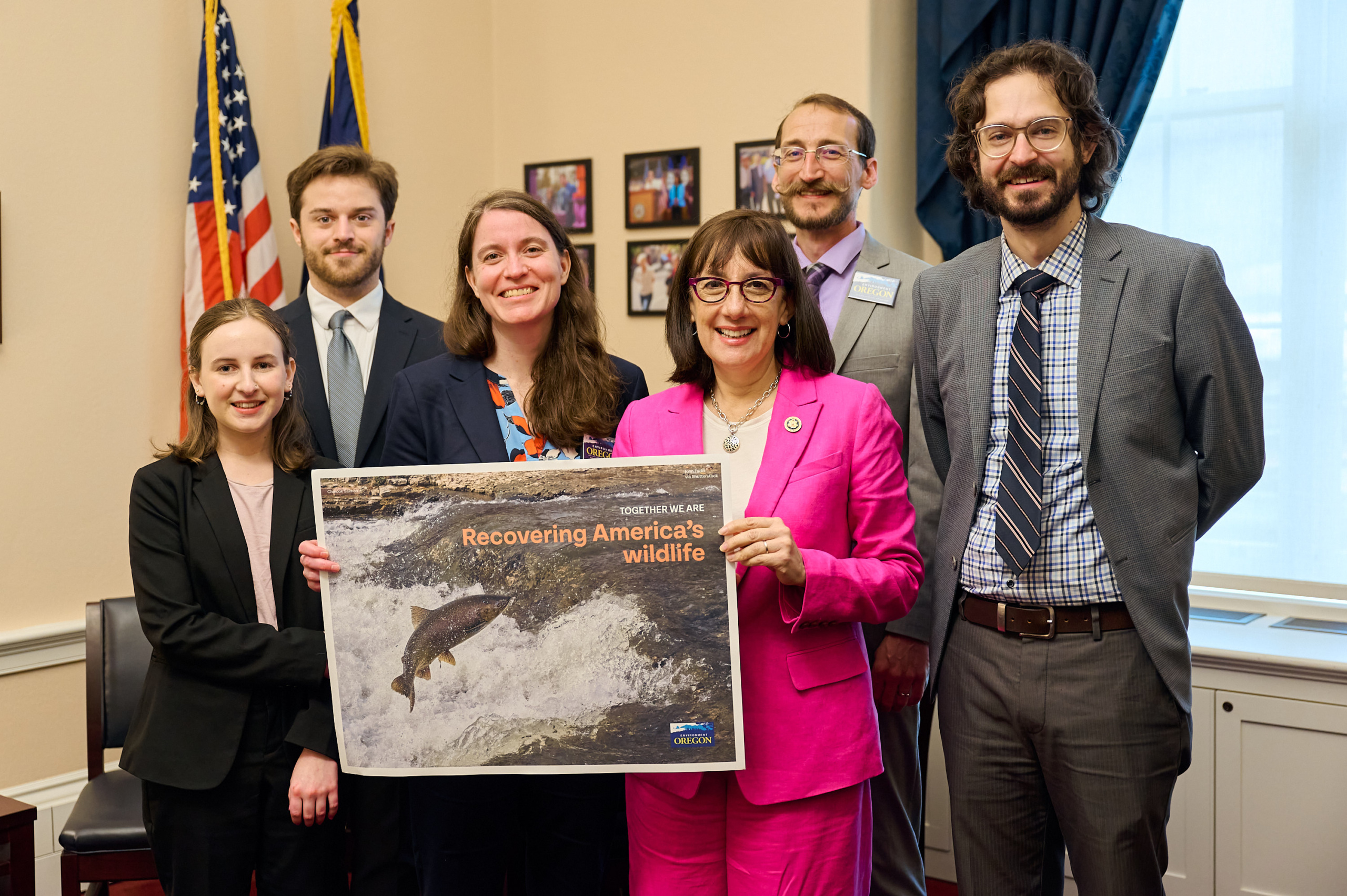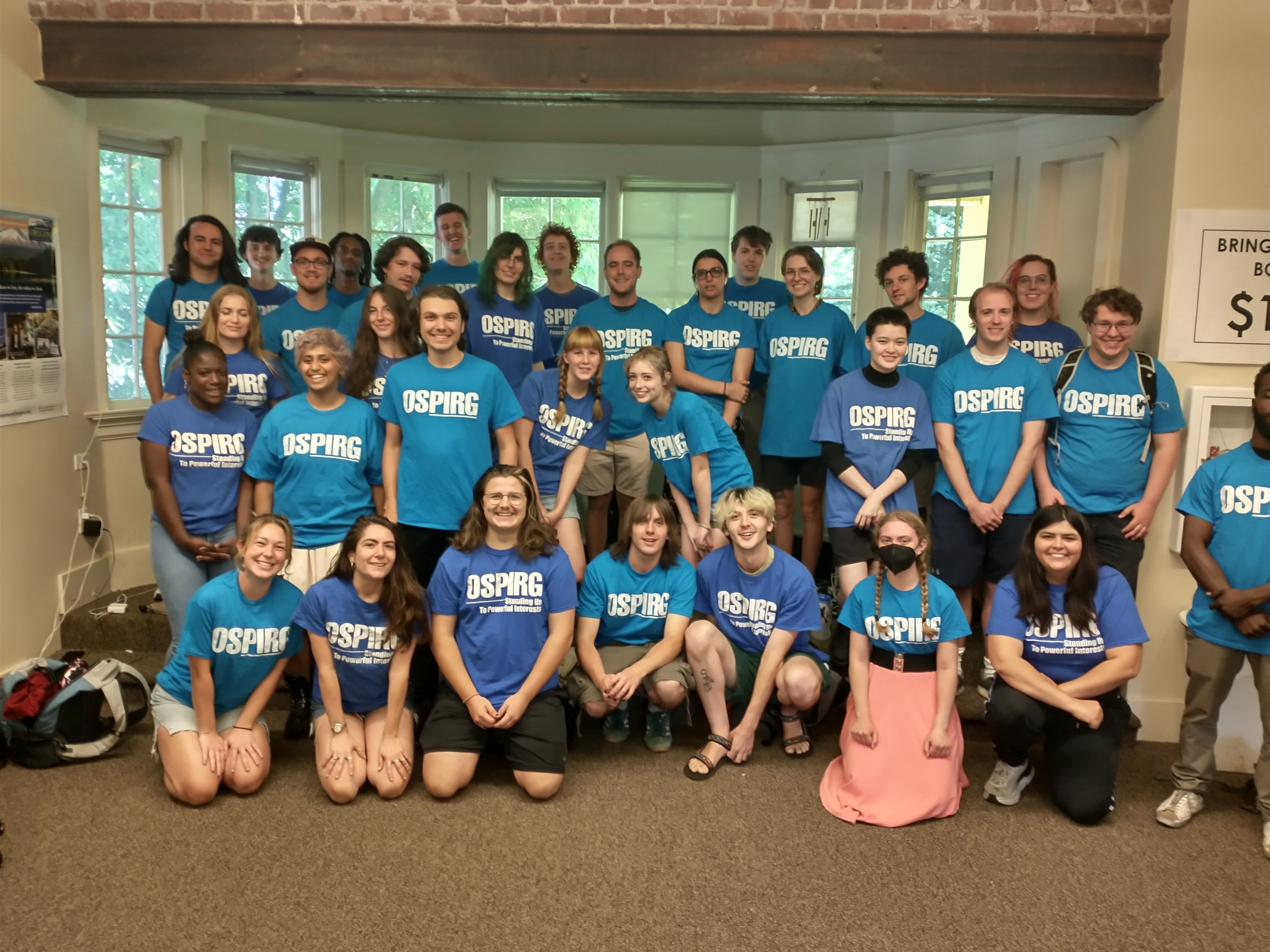
Straight from Salem: Introductions
This is the first in a series of blog posts from OSPIRG intern Sophie Goodwin-Rice with updates on OSPIRG’s health care bills this session.

This is the first in a series of blog posts from OSPIRG intern Goodwin-Ricern Sophie with updates on OSPIRG’s health care bills this session.
Sophie grew up in Oregon and currently attends Willamette University in Salem, where she is a senior majoring in Politics, Policy, Law & Ethics and Spanish. This session she is interning with OSPIRG on campaigns for high value health care, and plans on pursuing a career in Oregon policy and advocacy after graduating from college. In her spare time, Sophie enjoys playing the violin and spending time outdoors.
When I interned for my state senator a few sessions ago, I was struck by just how many issues there were on each day’s agenda, the number of members involved in passing each piece of legislation, and just the sheer amount of bills on the table. The avalanche of information coming out of the Capitol building each day can be hard to sort through, and it doesn’t help that this year presents its own challenges as the first ever full session to be conducted remotely during a global pandemic. The doors to the Capitol may be closed this year, but I’m starting this blog series as a way to make accessing the news a little easier and providing updates on OSPIRG’s health care bills.
I spend most of my time across the street from the Capitol at Willamette University, where I’m a senior majoring in Politics, Policy, Law, and Ethics. As both an intern at OSPIRG and an Oregon college student, it’s been fascinating to watch the legislative session unfold thus far, especially at this crucial point in our nation’s history. I’m able to learn about how the American health care system has come up short during this crisis in my Democracy in a Pandemic capstone class at Willamette and then turn around and do grassroots organizing for health care legislation for OSPIRG, actively turning my education into action. Now, a few weeks into the session, four of the bills OSPIRG is working on – bills which actually address the issues that I’ve been learning about – are making their official arrivals onto the legislative scene.
HB 2010 was introduced onto the House Floor on February 23rd by Rep. Andrea Salinas (D-Lake Oswego) and was subsequently referred to the House Committee on Health Care. Over the next few weeks, the committee will hold a hearing for the bill, in which advocates, constituents, and other legislators will have the opportunity to testify before it is put to a vote to move it to the Joint Committee on Ways and Means and then the House Floor. If passed by both chambers, HB 2010 would add a low-cost, high value plan to the Health Insurance Marketplace, offering an alternative to the limited and expensive options that are currently available.
HB 3267 was also introduced onto the House Floor on February 23rd by Rep. Rachel Prusak (D-Tualatin), and was referred to the House Committee on Health Care a few days later. Like HB 2010, this bill will also be moved to the Joint Committee on Ways and Means after a hearing and vote are held in Health Care and the public is given an opportunity to testify. HB 3267 is a joint effort with the Oregon Coalition for Affordable Prescriptions to build on the 2018 bill that established a Prescription Drug Transparency Program and actually lower prescription drug costs.
On the other side of the Capitol building, SB 763 was introduced onto the Senate floor by Sen. Deb Patterson (D-Salem) on February 18th and referred to the Senate Committee on Health Care on the 22nd. If passed by the Legislature, this bill would hold pharmaceutical sales representatives to high standards of registration, ethics, and disclosure, increasing oversight where it is currently lacking. The first hearing for SB 763 is scheduled for March 3rd at 1:00 pm in the Senate Committee on Health Care. It can be accessed remotely here.
Just like SB 763, this bill was introduced on February 18th by Sen. Patterson and is scheduled for a public hearing on March 3rd during the same committee meeting. If the members of the Senate Committee on Health Care vote “yes” on SB 764 after the hearing, they will be voting to prohibit pay-for-delay, a practice in which brand-name manufacturers pay other manufacturers to hold off on producing generic, more affordable versions of the drug when their patents are set to expire. By prohibiting this practice, the state will open the market for generic, less expensive alternatives.
I’ll be posting new installments of this blog regularly throughout the rest of the session, giving updates on the status of these bills, sharing relevant news developments from the Capitol, and alerting you to opportunities for getting involved and making your voice heard. Right now, you can help us by filling out this survey about your experience with Oregon health care, which will help us better understand the issues at hand and show lawmakers just how important high value health care is to Oregonians.
Topics
Authors
Maribeth Guarino
High Value Health Care, Advocate, PIRG
Maribeth educates lawmakers and the public about problems in health care and pushes for workable solutions. When she's not researching or lobbying, Maribeth likes to read, play games, and paint.
Find Out More

OSPIRG Federal Lobby Day: Bills in Congress would tackle microplastic pollution and health care price transparency

Consumer Protection Week 2024: Empowering Consumers in a Complex Marketplace

PIRG’s warmest wishes for a safe and happy new year

